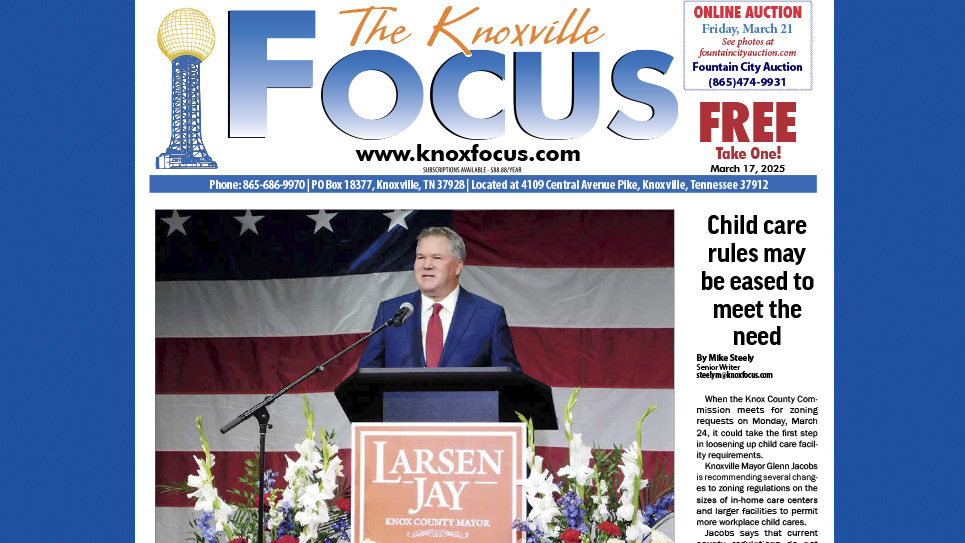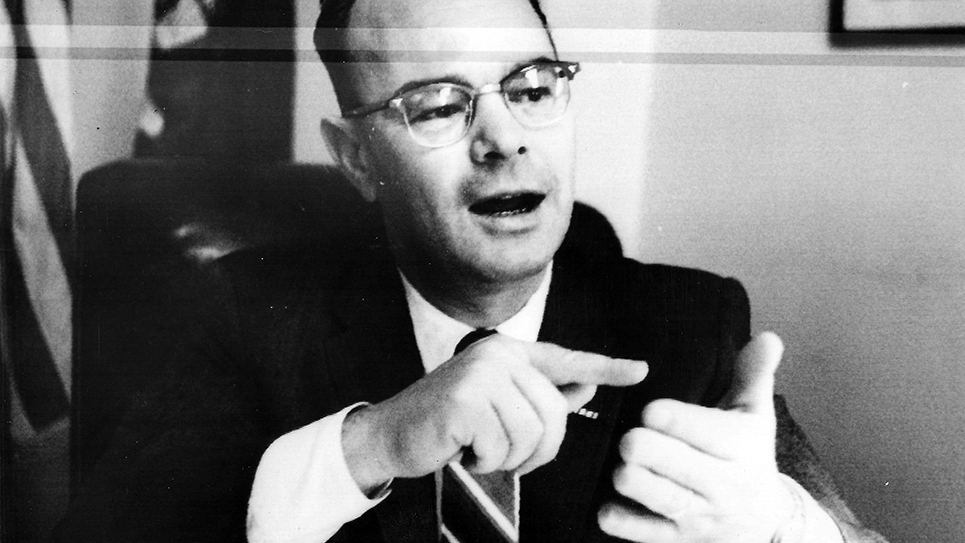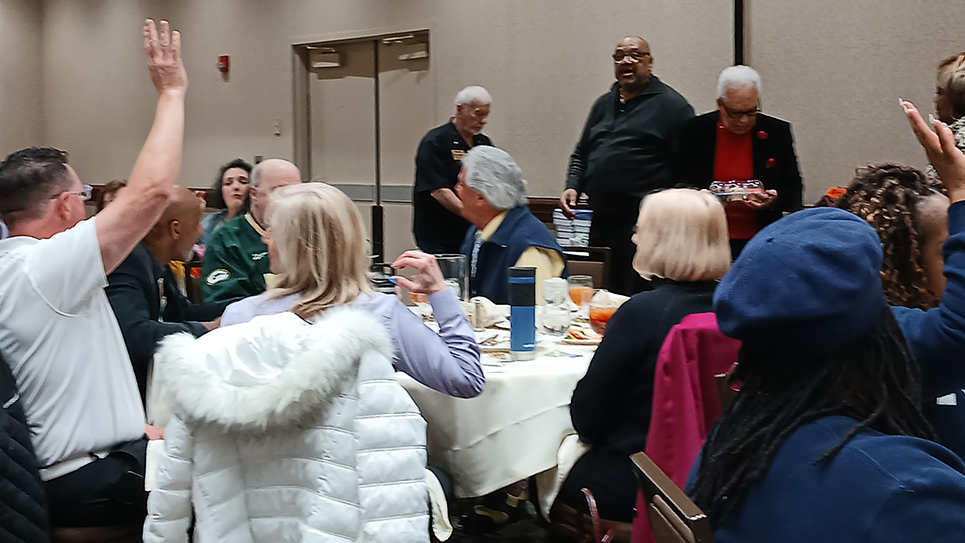By Ray Hill
The two most enduring political figures in Tennessee’s modern history are Kenneth McKellar and Cordell Hull. McKellar holds the record in Tennessee for the longest tenure in Congress at forty-two years; K. D. McKellar remains Tennessee’s longest-serving United States senator at thirty-six years. McKellar is also the first person ever to be elected to the United States Senate by popular election. Prior to Kenneth D. McKellar’s election in 1916, United States senators had been elected by the Tennessee General Assembly. The long political careers of Kenneth McKellar and Cordell Hull ran pretty much parallel to one another for decades. Similarly, both were highly respected and venerated by tens of thousands of their constituents. Two years apart in age with McKellar being slightly older, the two men held sway in their respective political arenas for decades.
Cordell Hull had been a state legislator, judge, and congressman from Tennessee for his entire adult life. Hull was known for his extreme caution, yet as cautious as he was, the congressman managed to be swept out of office in the 1920 election, which was a landslide victory for the Republicans. Alf Taylor won the governorship and the GOP won five out of ten congressional seats in the Volunteer State. Hull became chairman of the Democratic National Committee while at the same time plotting his own comeback inside Tennessee’s Fourth Congressional District. Cordell Hull avenged his defeat, beating congressman Wynne F. Clouse badly in the solidly Democratic Fourth District. The 1920 election was Hull’s only electoral loss in a long political career. In part, Hull lost because he had not been enthused about giving women the right to vote.
Like most congressmen, Cordell Hull had more than occasionally cast longing eyes in the direction of the United States Senate. Hull had considered running in the 1915 Democratic primary against incumbent Luke Lea, but ever cautious, opted against it. Instead, Congressman Kenneth McKellar took the gamble and beat not only Lea but also former Governor Malcolm Rice Patterson in the primary and run-off elections. That was the only time in Tennessee’s modern political history where a run-off election was held to determine the winner between the two top vote-getters.
In 1928 Senator McKellar beat Congressman Finis Garrett in the Democratic primary; Garrett was also the Minority Leader in the House of Representatives. The Republicans nominated a credible candidate in the person of James A. Fowler, an eminent attorney and the mayor of Knoxville. Fowler had been a special U.S. Attorney General and was recognized as one of the best legal minds in Tennessee and the South. Tennessee landed in the Republican column once again in the presidential race, but it was less a party-line vote than a reaction to the candidacy of Al Smith, the wringing “wet” Catholic governor of New York who was the Democratic presidential nominee. Even so solidly a Democratic county as Davidson (Nashville) deserted Smith and voted for the staid Quaker Republican, Herbert Hoover. Ed Crump and his political organization were only barely able to carry Shelby County for Smith. The GOP nominees for Congress, governor and the United States Senate got little boost outside of ordinarily Republican counties. Democrats who found Smith objectionable had no such objections to Senator McKellar, Governor Henry Horton or their party’s congressional nominees.
Cordell Hull finally made his move to win a seat in the United States Senate in 1930. Incumbent Senator Lawrence D. Tyson died suddenly in August of 1929 and Governor Henry Horton appointed Chattanooga candy manufacturer William E. Brock to fill the vacancy after Luke Lea turned down the appointment. Almost immediately, Hull announced he would be a candidate for the full six-year term in the 1930 election. Initially, it appeared Hull would have his hands full as longtime Nashville Congressman Joseph W. Byrns wanted a promotion to the Senate. Byrns toyed with the idea and was almost as indecisive as Hull was oftentimes. Eventually, Byrns announced his candidacy but it was short-lived. Jo Byrns had a mild heart attack while giving a speech kicking off his campaign for the Senate. Within a matter of days, Byrns had withdrawn as a candidate, opting to run again for his safe House seat. Hull drew only a negligible opponent who never represented a serious threat inside the Democratic primary. Reputedly, had Joseph W. Byrns run, he would have had the support of the effective political machine inside his own Davidson County, as well as that of E. H. Crump in Shelby County.
The effect of the deepening Great Depression was being felt in Tennessee and Congressman Cordell Hull easily dispatched his Republican opponent, Major Paul E. Divine. Divine was a notable lawyer and orator, but he only got a little more than 27% of the vote, while Hull carried more than 71% of the ballots cast. Senator William E. Brock, running for the few months remaining of his term in a special election, got about 10,000 fewer votes but won quite nearly 75% of the vote in his own race.
1930 was a very good year for the Democrats, largely because of the Depression. Republicans lost eight seats in the Senate that year. Hull gave up his seniority in the House to start all over again as a freshman senator. Cordell Hull became Tennessee’s junior United States Senator on March 4, 1931, when he was escorted down the aisle on the arm of his senior colleague, Kenneth D. McKellar, to take the oath of office.
Tennessee’s U. S. senators were quite different in some notable ways. Cordell Hull was tall and stately, with a head of white hair that gave him the look of a statesman. McKellar was more compact and rotund, with a crow’s wing of dark hair falling across his brow. Hull spoke with a slight lisp and gave speeches about taxation and trade agreements, hardly subjects to rouse an audience. Senator McKellar could give a good speech and thought quickly on his feet, making him a formidable speaker on the floor of the Senate where give-and-take was part of the debate.
Hull’s appearance was noted by Harold Ickes, FDR’s curmudgeonly Secretary of the Interior, who did not much appreciate the Tennessean. Recording his thoughts in his secret diaries (which were later published and became best-sellers), Ickes noted Secretary of Labor Frances Perkins was giving President Roosevelt a twenty-minute lecture on labor relations. “As usual,” Ickes wrote in his diary, “Only the President listened to her. Harry Hopkins wrote me a note. . . Bob Jackson was nodding from time to time and at intervals he and Morgenthau were joking about something. Hull sat with the air of an early Christian martyr, with his hands folded, looking at the edge of the table without seeing anything else. . . As usual, I studiously avoided beingcaught by Perkins’ basilisk eye. Henry Wallace was contemplating the ceiling.” Roosevelt had said of Cordell Hull to Harold Ickes, “He goes about looking like an early Christian martyr, and people think he is wonderful just on the basis of his looks.”
Cordell Hull certainly meticulously tended to and guarded his public image jealously. Senator McKellar did nothing of the kind and even to this day, their political reputations reflect that difference. Both McKellar and Hull were early boosters of Franklin D. Roosevelt’s presidential candidacy before the 1932 Democratic National Convention. Tennessee was solidly for Roosevelt and would remain that way.
After sweeping Tennessee and the nation in the 1932 election, Franklin Roosevelt began putting together his Cabinet. Roosevelt offered Hull the most important post in the new administration, Secretary of State. The Tennessean was reluctant to accept the post, telling Roosevelt he did not have the financial means to entertain lavishly as had most State Department heads in the past. FDR indicated that would not be expected of him, but Hull remained hesitant, especially as his wife Frances was adamantly opposed to his becoming Secretary of State. Frances Hull watched carefully and fiercely over her husband who, despite outward appearances to the contrary, was not a well man. Finally, Hull accepted Roosevelt’s offer, which he regretted soon enough.
Roosevelt wanted Hull for his Secretary of State primarily for two reasons: his prestige inside the Congress and as a decoration. FDR intended to be his own Secretary of State, a startling fact Hull discovered too late. Cordell Hull spent much of his time as Secretary of State pushing reciprocal trade agreements, a topic that became something of an obsession with him. Roosevelt always treated Hull with deference and respect, at least publicly and to the Tennessean’s face, but the secretary soon realized the president largely ignored his advice about foreign affairs. It was not long before Cordell Hull wished he had listened to his wife and remained in the United States Senate.
Kenneth McKellar, with the Democrats back in the White House and in control of Congress, found himself serving as Chairman of the relatively minor Post Office & Post Roads Committee, as well as the ranking member of the powerful Senate Appropriations Committee. Yet the chairmanship of the Post Office Committee gave the senator enormous influence over federal jobs inside Tennessee. McKellar routinely chose post office personnel inside his home state, down to the fourth-class rural mail carrier. Senator McKellar’s political organization in Tennessee ran from Memphis to Mountain City. Usually, journalists from outside Tennessee and latter-day historians never understood the senator had his own political organization whose first loyalty was to McKellar; those same journalists and historians merely lumped that organization into that of E. H. Crump. In truth, while Crump remained all-powerful in Memphis and Shelby County, the Boss was dependent upon McKellar for statewide contacts. When Governor Gordon Browning, whom Crump had supported and McKellar had opposed, turned on the Memphis machine, the Boss cried to the senator for help.
Senator McKellar had a satrap in each congressional district, as well as supporters in each of Tennessee’s ninety-five counties, and applicants for highly prized federal jobs required the endorsement of some high ranking person inside the McKellar organization if that person was unknown to the senator himself. Cordell Hull had never built any kind of political organization and when his successor in the Senate, Nathan L. Bachman, died unexpectedly of a heart attack in April of 1937, the Secretary of State began to ponder a bid to return to the U. S. Senate. Hull conferred with his friend Judge James Gardenhire and hurried to the office of his former colleague Senator McKellar on Capitol Hill.
As Hull privately expressed his displeasure with FDR and his desire to return to the Senate, Roosevelt, naturally, caught wind of the rumors and moved with alacrity to forestall Hull’s options. Nathan Bachman’s heart had barely stopped beating before Governor Gordon Browning was besieged by eager would-be senators and their supporters. Browning was summoned to the White House for a conference. Only Franklin Roosevelt and Gordon Browning know what was said during that meeting and both have long since been dead. What President Roosevelt did say was he had not presumed to tell the governor whom to appoint, but rather whom not to appoint. Governor Browning did not appoint Cordell Hull; instead, the governor named George L. Berry, head of the International Printers’ and Printing Union to the United States Senate on May 7, 1937. Berry was not merely an unlikely choice, but a downright odd selection for the governor to make. Coming from the rock-solidly Republican First Congressional District, Berry had never before been elected to any political office. George L. Berry also had a running dispute over mineral deposits with the Tennessee Valley Authority which was so popular in the state, no politician could trifle with it seriously. There is some reason to believe Browning may well have appointed a senator he felt could be easily beaten in a primary. Certainly, there was no doubt in anyone’s mind that Gordon Browning’s ultimate political ambition was to serve in the United States Senate.






